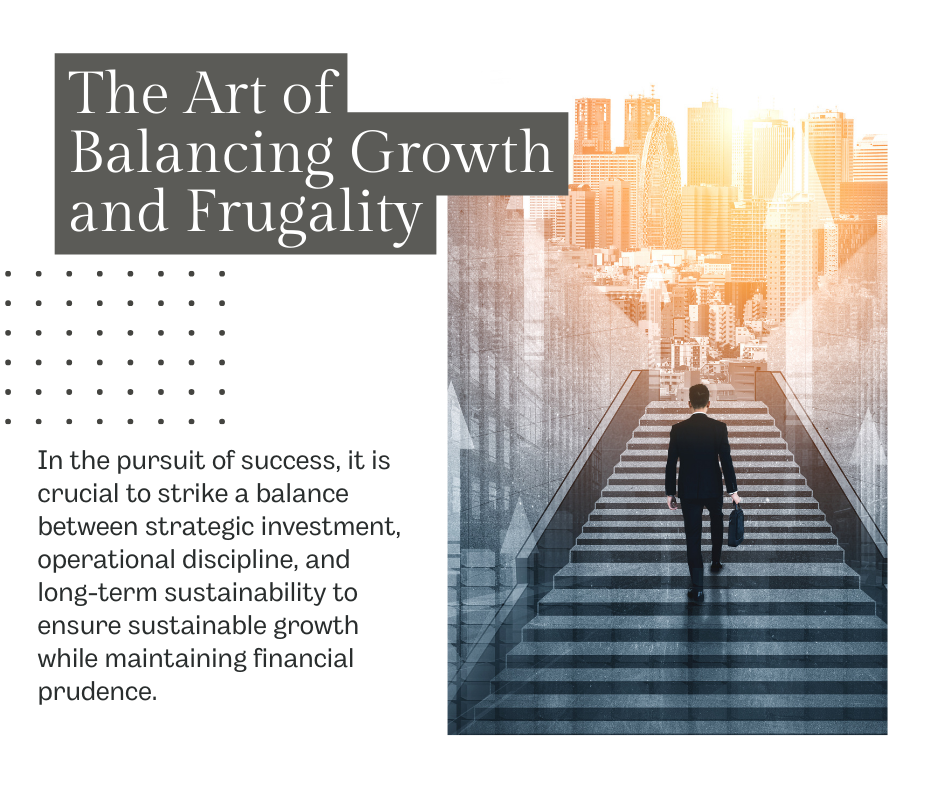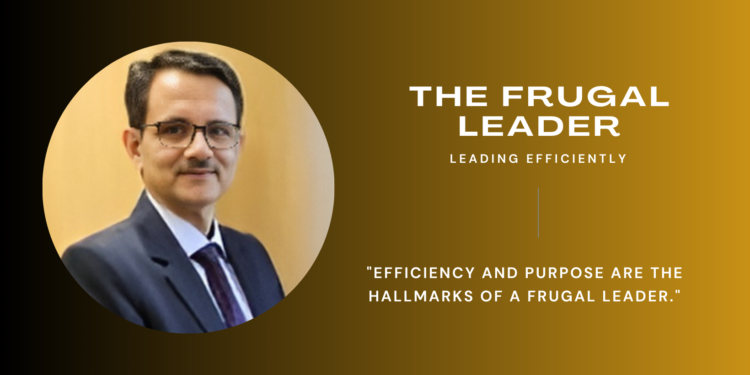In the realm of leadership, where grand visions and charismatic personas often take the spotlight, the concept of frugality might seem out of place. However, the essence of effective leadership lies not just in grand gestures but in the ability to make meaningful decisions that benefit the organization. Enter the frugal leader – a figure who embodies resourcefulness, efficiency, and a keen sense of purpose in all endeavours.
Defining Frugality in Leadership
Frugality in leadership does not simply mean being cheap or penny-pinching. Instead, it encompasses a mindset that values thoughtful resource allocation, prioritization of needs over wants, and a strategic approach to decision-making. A frugal leader understands the importance of conserving resources without compromising quality or long-term goals.
Identifying a Frugal Leader
- Strategic Prioritization: They have a knack for identifying what truly matters and directing resources towards those priorities. This skill helps in avoiding wasteful expenditures and focusing efforts on initiatives that drive meaningful outcomes.
- Long-Term Vision: While frugal leaders are mindful of immediate costs, they also maintain a focus on long-term sustainability and growth. They invest wisely in initiatives that promise lasting benefits, even if the returns are not immediate.
- Resourcefulness: Frugal leaders excel at making the most out of limited resources. Whether it’s financial capital, human talent, or time, they seek innovative solutions and creative alternatives to achieve objectives efficiently.
- Lead by Example: Frugal leaders demonstrate their commitment to efficiency through their actions. They are not extravagant in their personal or professional conduct and inspire their teams to adopt similar principles.
- Embrace Innovation: They encourage a culture of innovation where finding smarter, more efficient ways of working is celebrated. This openness to change fosters continuous improvement and adaptation to new challenges.
Challenges of Frugal Leadership

While the benefits are significant, frugal leadership does come with its own set of challenges:
- Risk Aversion: There’s a fine line between prudent financial management and excessive risk aversion. Frugal leaders must balance caution with the necessary risks to spur growth and innovation. Being too risk-averse can stunt growth.
- Cultural Resistance: In some organizational cultures, frugality might be misunderstood as austerity or lack of investment. Effective communication is crucial to aligning the team behind the principles of frugal leadership.
- Balancing Priorities: Prioritization can be challenging when resources are limited. Frugal leaders must navigate competing demands and allocate resources judiciously.
Frugality and Successful Entrepreneurship
Entrepreneurship, often synonymous with risk-taking and innovation, also thrives on the principles of frugality. While visions of lavish spending and high-risk investments can dominate the entrepreneurial landscape, successful entrepreneurs understand the power of careful resource management and strategic frugality in achieving sustainable growth and long-term success. Frugality in entrepreneurship goes beyond mere cost-cutting; it embodies a mindset that values efficiency, innovation, and disciplined decision-making. Successful entrepreneurs recognize that every dollar spent should contribute directly to the growth and stability of their venture. They prioritize investments that promise tangible returns and are cautious about overextending resources on non-essential expenditures.
Is Startup Culture and Private Equity Funding Destroying the Frugal Approach?
In the dynamic landscape of entrepreneurship, the rise of startup culture and the influx of private equity (PE) funding have reshaped the way businesses operate and grow. While these trends have brought unprecedented opportunities for innovation and rapid scaling, they have also sparked a debate about their impact on the traditional frugal approach to business management and growth.
Frugality in business has long been valued for its emphasis on efficiency, resourcefulness, and sustainable growth. Entrepreneurs historically relied on bootstrapping – using personal savings or revenues to fund operations – and practised careful cost management to achieve profitability and resilience.
Startup culture, characterized by fast-paced growth, disruptive innovation, and risk tolerance, often prioritizes speed to market and rapid scaling over traditional frugal practices. Startups fueled by venture capital (VC) or PE funding may focus more on capturing market share quickly rather than optimizing operational efficiency from the outset.
Impact of Private Equity (PE) Funding
Private equity firms inject substantial capital into businesses intending to accelerate growth and maximize returns for investors. While this funding can provide startups with the resources needed to expand rapidly, it may also lead to unnecessary increased spending on marketing, technology, and talent acquisition –that might not align with a frugal approach focused on lean operations and careful resource allocation.

Balancing Growth and Frugality
While startup culture and PE funding can challenge traditional frugal approaches, there are ways to strike a balance by a leader/ entrepreneur:
- Strategic Investment: One can leverage funding strategically, investing in scalable technologies and talent while maintaining a focus on efficiency and cost control.
- Operational Discipline: Implementing lean startup principles and continuously optimizing processes can help mitigate the risk of excessive spending and foster a culture of frugality.
- Long-Term Sustainability: Emphasizing profitability and cash flow management alongside growth objectives ensures that startups remain financially resilient and less dependent on external funding.
Conclusion
In a world where efficiency and sustainability are increasingly valued, the role of the frugal leader becomes more relevant than ever. By embodying principles of resourcefulness, strategic prioritization, and long-term vision, frugal leaders not only safeguard their organizations against unnecessary risks but also foster a culture of innovation and responsible growth. Embracing frugality fosters a culture of innovation, encourages responsible stewardship of resources, and ultimately sets the foundation for sustainable growth and enduring success.
Read Also : The Power of Silence: How Leaders Can Harness the Art of Not Responding Immediately












